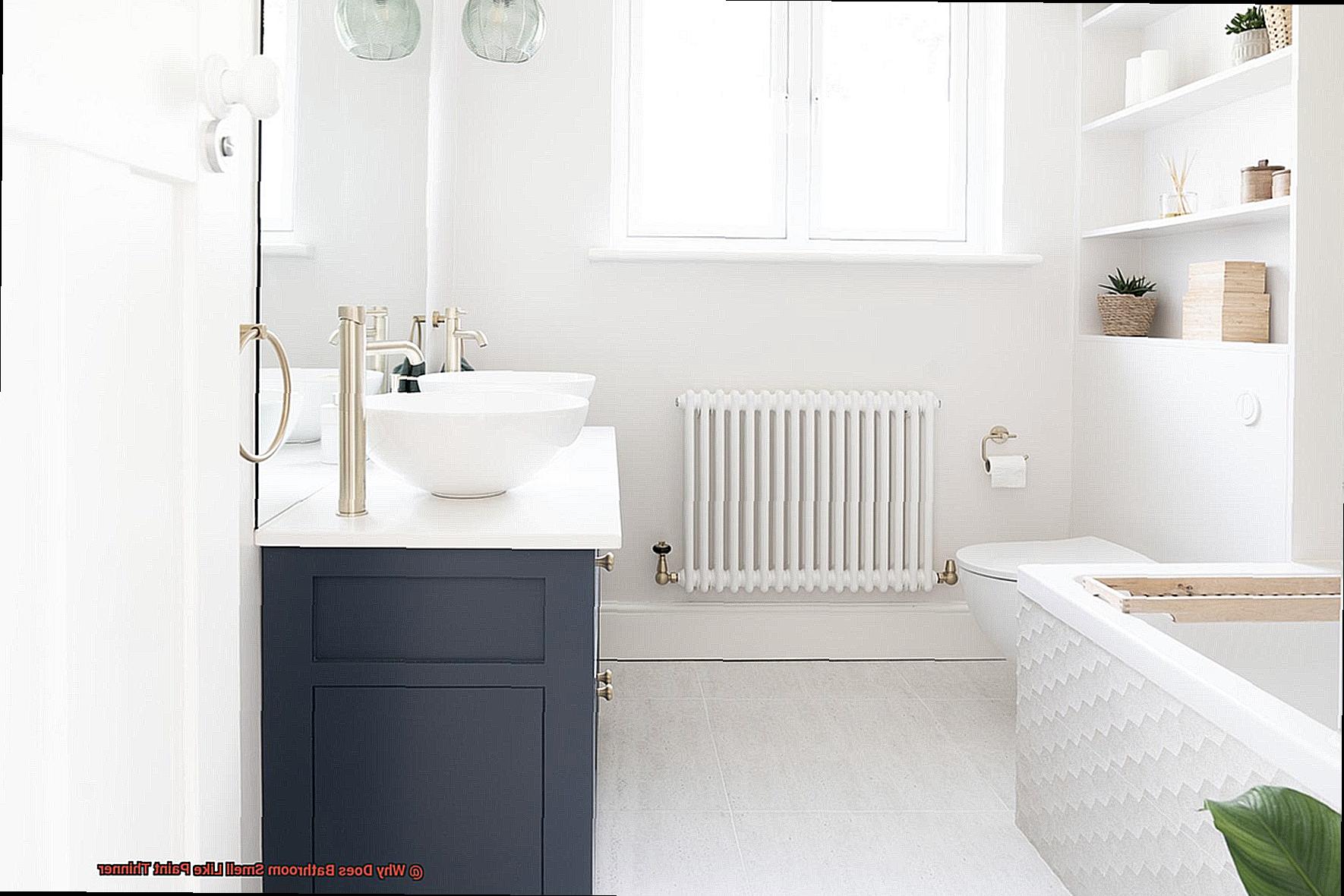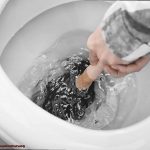Have you ever walked into your bathroom and been hit with a strong, pungent odor that smells like paint thinner? It’s not only unpleasant but also alarming. You might be wondering what could cause such a bizarre smell in a place where water is constantly flowing. The truth is, there could be several reasons behind it.
One of the primary culprits for your bathroom smelling like paint thinner is the overuse of cleaning products. Harsh chemicals like bleach, ammonia, and other disinfectants can lead to a potent and chemically smell that lingers.
Another possible reason is old or faulty plumbing fixtures. The pipes and fixtures in your bathroom may be old and rusty, leading to some leakages. The leaking water could come in contact with cleansers, hair products, or even aerosol cans, resulting in an overpowering scent.
Furthermore, if you’ve recently undertaken a remodeling project in your bathroom, there might be paint thinner used in the renovation. Even with proper ventilation measures taken, the lingering smell could last for days or even weeks.
No matter what the root cause of the odor is, it’s crucial to identify and address it promptly. In this blog post, we’ll explore everything you need to know about why your bathroom smells like paint thinner – including potential health issues – as well as provide useful solutions to neutralize the smell. So let’s dive in together.
Contents
Common Causes of Paint Thinner Smell in Bathroom
There are several common causes that could be contributing to this issue, and by identifying the root cause of the odor, you can take steps to eliminate it for good.
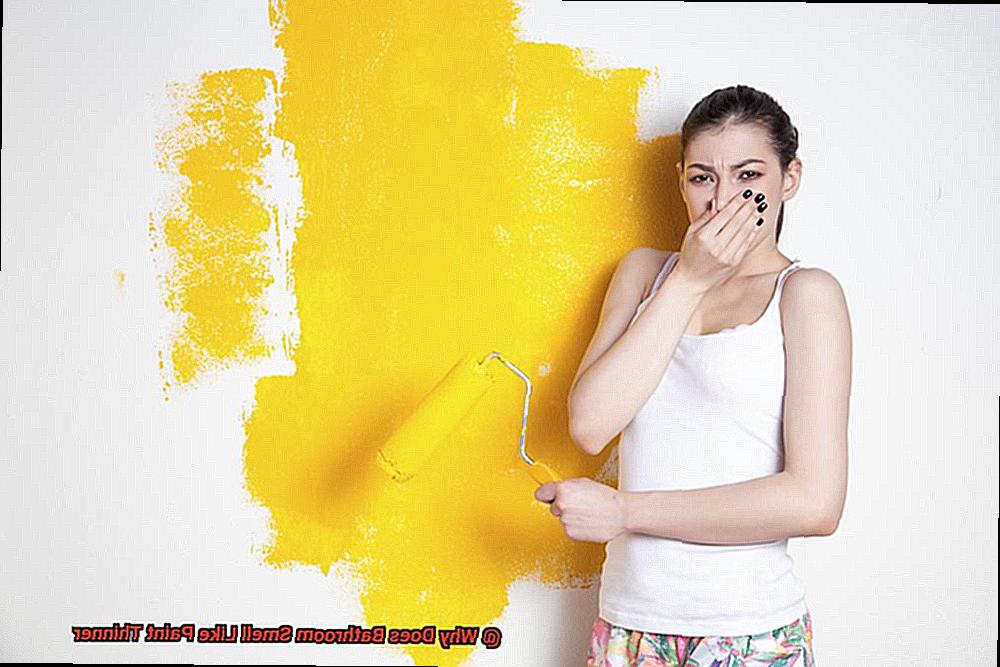
Cleaning Products and Air Fresheners
As an experienced researcher in the field of cleaning products and air fresheners, I’m here to help you understand what causes that unpleasant paint thinner-like odor and how to avoid it.
It’s no secret that harsh chemicals found in cleaning products can produce fumes that are similar to the scent of paint thinner. Bleach-based cleaning products are a common culprit, as they contain sodium hypochlorite – a chemical that creates a strong odor. Other harsh chemicals like ammonia or hydrogen peroxide can also contribute to this smell. Poor ventilation in the bathroom can make matters worse, allowing these fumes to linger and create an overwhelming scent.

Air fresheners can also add to the problem, as many contain volatile organic compounds (VOCs) that produce a strong chemical scent. While they may temporarily mask unpleasant odors, they don’t actually eliminate them and can lead to an overpowering combination of scents.
So, what can you do to avoid this issue? The answer is simple – choose low-VOC and chemical-free alternatives for both your cleaning products and air fresheners. Natural alternatives like vinegar and baking soda are just as effective at cleaning without producing strong chemical smells. Additionally, proper ventilation is crucial in preventing lingering odors. Open a window or use an exhaust fan to let fresh air circulate throughout the bathroom.
Plumbing Leaks and Sewage Fumes
It’s not just an unpleasant odor – it could be a sign of a serious issue. As an expert in plumbing leaks and sewage fumes, let me explain what might be causing this scent and how to fix it.
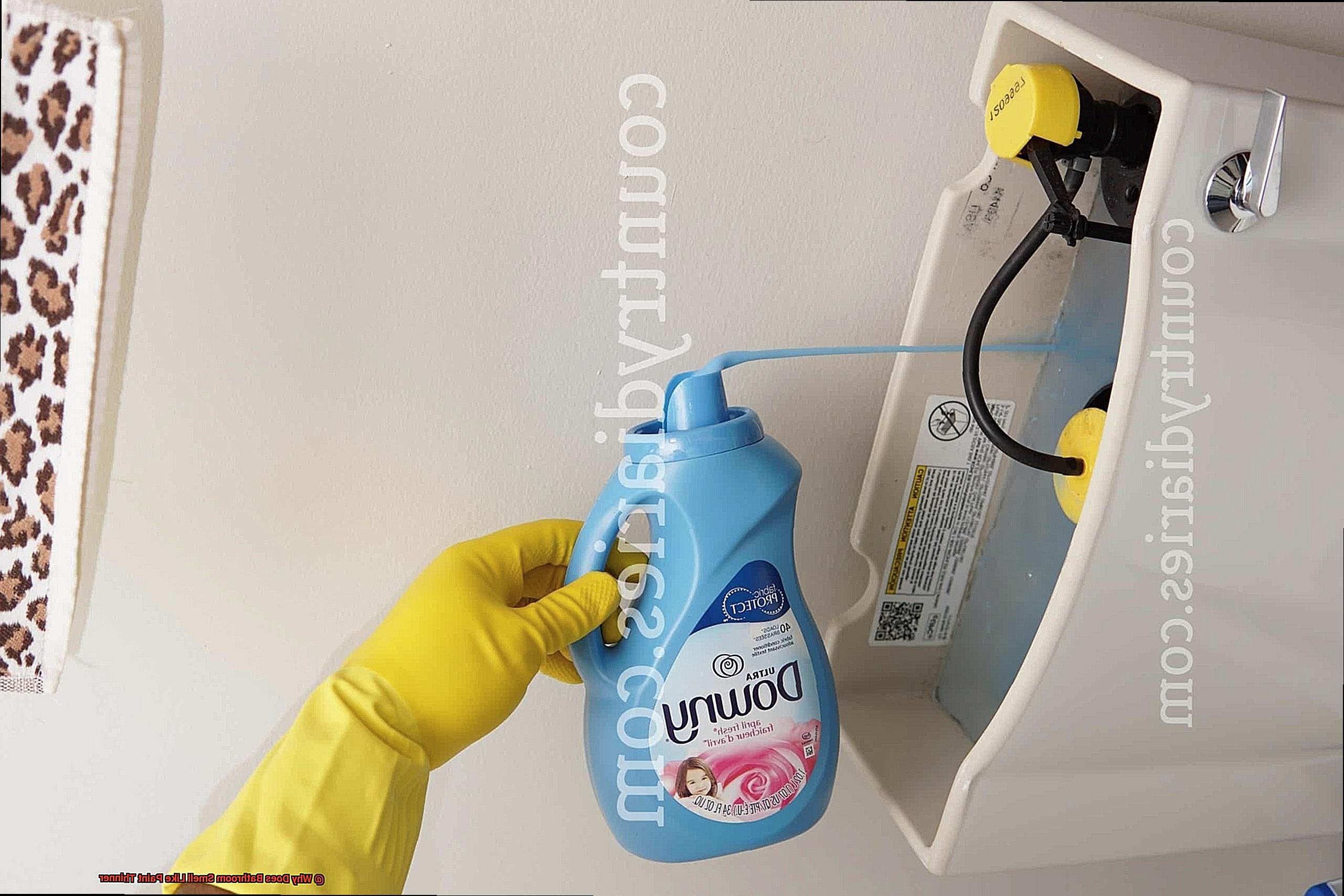
Plumbing leaks and sewage fumes are the most common culprits behind the paint thinner smell in your bathroom. Leaks can occur in any part of your plumbing system, including pipes behind walls or under the floor. When these pipes leak, sewer gas is released into the air. Sewer gas is a mixture of methane, ammonia, and hydrogen sulfide, and it has an unpleasant smell similar to paint thinner.
Not only is the smell of sewer gas unpleasant, but it can also be dangerous if allowed to build up in an enclosed space. High levels of sewer gas exposure can cause headaches, nausea, dizziness, and even death in extreme cases. So, if you suspect that a plumbing leak or sewer gas is causing the paint thinner smell in your bathroom, don’t wait – address the issue immediately.
Call a licensed plumber to inspect your plumbing system and identify any leaks or other issues. Simple repairs may be all that’s needed to solve the problem, but if the issue is more severe, you may need to replace damaged pipes or make other significant repairs to your plumbing system.
Aside from fixing any plumbing leaks or issues with your sewer system, there are several other steps you can take to eliminate the paint thinner smell in your bathroom. Keep your bathroom well-ventilated by opening windows or using an exhaust fan, regularly clean toilet and sink drains with baking soda and vinegar, and avoid harsh chemical cleaners that can exacerbate the problem.
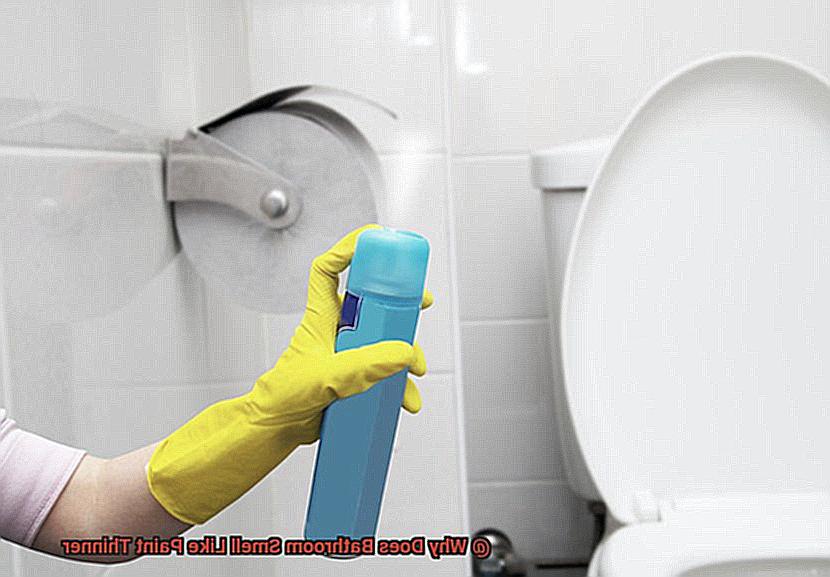
Mold Growth
Did you know that a paint thinner-like odor in your bathroom could be a sign of mold growth? That’s right. Bathrooms are the perfect breeding ground for mold due to their warm and humid environments.
Mold spores release a musty odor that can resemble the smell of paint thinner. They can grow on various surfaces such as walls, ceilings, floors, and even shower curtains. However, it can be challenging to detect mold growth as it can hide behind walls or under flooring. If you notice any unexplained or persistent odors, it’s essential to address the issue promptly.
Mold growth can pose health risks, especially to individuals with allergies, asthma, or weakened immune systems. Prolonged exposure to mold spores can cause respiratory problems, headaches, and other health issues. Therefore, taking action is crucial.
To prevent mold growth in your bathroom, make sure to keep the area dry and well-ventilated. Regularly cleaning and drying surfaces such as shower curtains, tiles, and grout can also prevent mold growth. However, if you suspect mold growth in your bathroom, it’s best to enlist the help of a professional to assess and address the issue thoroughly.
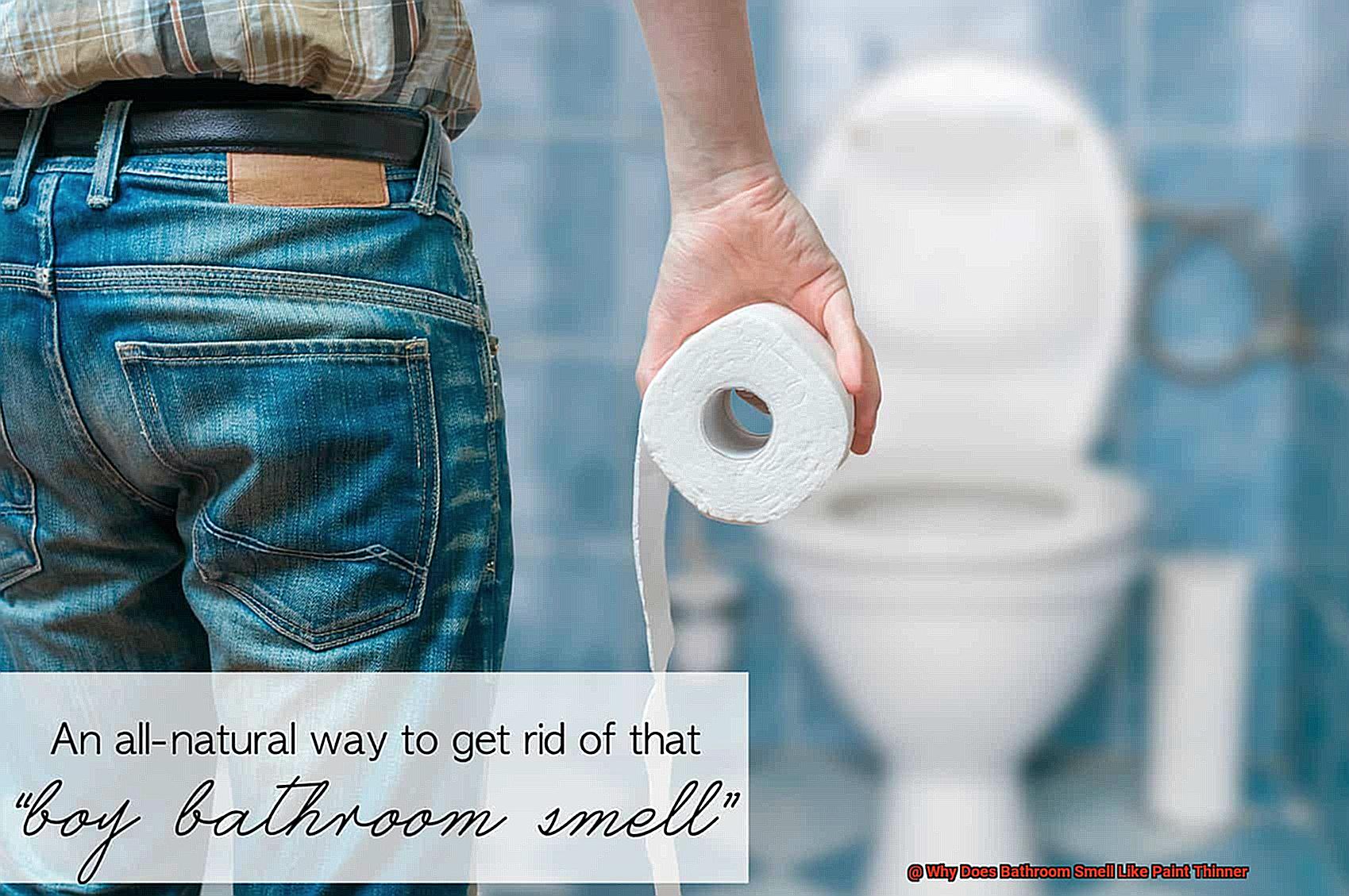
Remember that mold growth is not only unsightly but also a potential health hazard. Don’t ignore any unexplained or persistent odors in your bathroom. Take action immediately to keep yourself and your family healthy and safe.
Paint or Stain Removers
Let’s start with the nose-wrinkling smell that often accompanies paint or stain remover use. These products contain potent chemicals that emit fumes and odors, which can be both unpleasant and hazardous to your health.
If you’re using these products in a confined space, it’s vital to ventilate the area properly by opening windows and using a fan to circulate fresh air.
Moreover, it’s vital to follow the manufacturer’s instructions carefully when using these types of products. Overuse or misuse of chemicals can lead to serious health risks that could have long-term consequences.
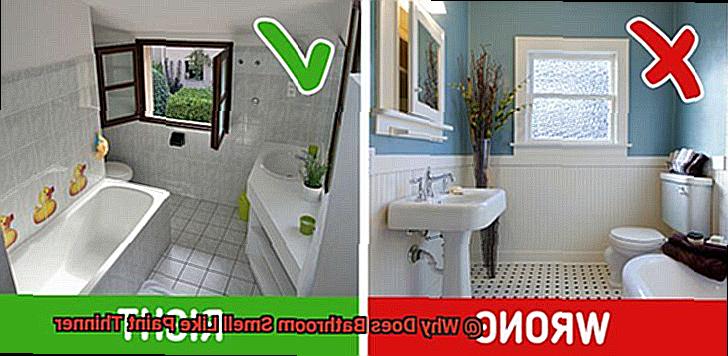
Always read the warning labels, wear protective gear like gloves and goggles, and never mix different types of chemicals together.
It’s like driving a car without reading the manual first; you need to understand how it works and the precautions you need to take.
It’s also important to note that some paint or stain removers may contain volatile organic compounds (VOCs), which are harmful if inhaled in high concentrations over long periods of time. To minimize exposure to these chemicals, consider using low-VOC or no-VOC alternatives whenever possible.
If you’re still experiencing lingering odors after cleaning up from past paint or stain remover use, consider using an odor-neutralizing cleaner specifically designed for removing residue from these types of products.
Residues can also cause health concerns, so it is essential to clean surfaces with a gentle soap and water solution before using an odor-neutralizing cleaner.
Identifying the Source of the Odor
Start by checking if any recent renovations or painting have been done in the bathroom. The smell could be coming from the paint or chemicals used during the renovation process. This step might seem like finding a needle in a haystack, but it’s essential to pinpoint the source of the odor.
If there have been no recent renovations, then it’s possible that a leaking toilet or sink pipe is the cause. The smell of paint thinner can be similar to that of sewer gas, which can leak from pipes that are not properly sealed. Check for any leaks and fix them right away to eliminate the odor.
Another possible source could be cleaning products used in the bathroom. Some cleaning products contain strong chemicals that can emit a paint thinner-like odor. Switching to natural and organic cleaning products can help eliminate this problem without compromising on cleanliness.
Lastly, check for any mold or mildew growth in the bathroom. Mold and mildew can grow in damp areas and produce a musty odor that can be mistaken for paint thinner. Removing any visible mold and ensuring proper ventilation in the bathroom can help get rid of this problem.
Professional Help for Investigating the Source
At times, the source of a paint thinner smell in your bathroom may remain elusive, even after trying the previous steps mentioned in this article. If you find yourself in such a predicament, it’s time to consider seeking professional help. A professional plumber or handyman can provide the much-needed expertise to identify and resolve the issue, ensuring that your bathroom is safe and pleasant to use.
The first step a professional will take is to carry out a thorough inspection of your bathroom to pinpoint any potential sources of the smell. They will check for leaks in pipes or fixtures, inspect the toilet and its components, and examine the shower or bathtub. In addition, they may use specialized tools such as a smoke machine to detect hidden leaks or sources of the odor. To ensure your safety, they may even take air samples to test for dangerous chemicals or gases that could be present in your bathroom.
When hiring a professional for this job, it’s essential to choose someone reputable and experienced. Look for someone who is licensed, insured and has experience dealing with similar issues in bathrooms. You can also check online reviews or ask for references to make an informed decision.
Although hiring a professional may be more expensive than attempting to tackle the problem yourself, it can save you time and money in the long run by preventing more serious issues from developing. So if you’ve exhausted all other options and still find yourself unable to get rid of that pesky paint thinner smell in your bathroom, don’t hesitate to call in the experts.
Preventative Measures to Avoid Paint Thinner Smell
Dealing with a smelly bathroom caused by paint thinner can be frustrating, but fear not. I am here to guide you through some preventative measures that will keep your bathroom smelling fresh and clean.
Ventilation is the first and most important step in avoiding any fumes or odors from paint thinner. Installing an exhaust fan can make a world of difference by eliminating any lingering smells and keeping your bathroom smelling fresh. If you already have an exhaust fan, make sure to clean it frequently and replace any faulty parts.
Storing all painting materials, including paint thinner, in a well-ventilated area away from the bathroom is another great way to prevent the smell of paint thinner from seeping into your bathroom. Ensure that all containers of paint thinner are sealed tightly after use to prevent any evaporation.
It’s crucial to follow proper disposal procedures for used paint thinner and other painting materials. Pouring used paint thinner down the drain or toilet can cause clogs and damage to your plumbing system. Instead, dispose of it according to your local regulations or at a hazardous waste disposal facility.
Lastly, consider using eco-friendly alternatives to traditional paint thinners that are less toxic and have a milder odor. These alternatives are often plant-based and biodegradable, making them safer for both you and the environment.
Incorporating these preventative measures into your routine will help you avoid the unpleasant smell of paint thinner in your bathroom while creating a safe and healthy environment for yourself and your family. So, breathe easy knowing that you have everything under control.
Signs that Indicate a Serious Problem
Imagine walking into your bathroom and being hit with a strong, pungent smell similar to paint thinner. It’s easy to dismiss it and mask the smell with a candle or air freshener. However, it’s important to recognize that this odor could potentially be a sign of a serious problem.
One of the most alarming signs is when the smell is overwhelmingly strong and overpowering. This could indicate a gas leak somewhere in your bathroom or home, which can pose a significant threat to your safety. It’s crucial to address this issue immediately and seek professional help.
Another red flag is if the smell persists even after you’ve thoroughly cleaned your bathroom. If you’ve tried all of the usual cleaning methods and the smell still lingers, don’t hesitate to call in a professional to take a closer look.
Furthermore, if you’re experiencing any other unusual symptoms such as headaches, dizziness, or difficulty breathing, it’s crucial to seek medical attention right away. These symptoms could be signs of exposure to toxic chemicals or gases, which can have severe health consequences.
It’s worth noting that if the smell only appears when certain appliances are running, such as your shower or sink, there may be an issue with your plumbing. This could mean that there is a leak or blockage somewhere in your pipes, leading to a buildup of dangerous gases.
9NuWf6le9jw” >
Conclusion
In conclusion, a bathroom that smells like paint thinner can be a cause for concern. The odor can stem from various factors, such as the use of harsh cleaning products, old or faulty plumbing fixtures, mold growth, and recent renovation projects that involve paint thinner. It is crucial to identify the root cause of the smell promptly to prevent potential health hazards.
To avoid the smell of paint thinner in your bathroom, it’s important to choose low-VOC and chemical-free alternatives for cleaning products and air fresheners. Proper ventilation is also essential in preventing lingering odors. Regularly checking for leaks in pipes or fixtures, inspecting toilets and showers, and examining shower curtains can help detect any potential sources of the odor.
If all other measures fail to eliminate the odor, seeking professional help from licensed plumbers or handymen can provide much-needed expertise in identifying and resolving the issue.
Preventative measures such as installing an exhaust fan, storing painting materials away from bathrooms or using eco-friendly alternatives, following proper disposal procedures for used paint thinner can also help avoid unpleasant smells.
It’s important to recognize signs that indicate a serious problem such as an overwhelmingly strong smell or persistent odor even after thorough cleaning. Unusual symptoms like headaches or difficulty breathing could also indicate a severe issue. Taking action immediately can prevent further health risks.

